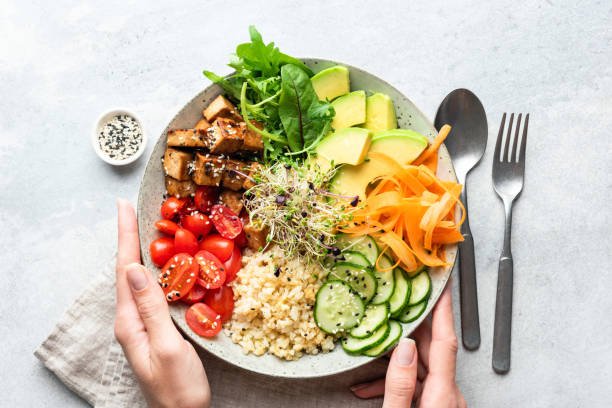
How to Prevent High Blood Pressure? 8 Daily Diet Methods to Lower Blood Pressure
You keep gaining weight without changing your eating habits, or you are serious about losing weight but your weight does not change, or you even suffer from high blood pressure. This is because many seemingly healthy foods actually contain a lot of calories, causing you to unknowingly eat too many high-calorie foods, causing your body to be overburdened and your blood pressure to rise.
How can you prevent high blood pressure and keep your weight from staying high? This article provides you with 7 daily dietary methods that can lower blood pressure, allowing you to easily lower your blood pressure and restore your health.
1.Drink more water
For the body to function effectively, water is an absolute necessity. Water is 100% natural and has no calories. Drinking water can make you feel full before meals, thereby reducing your daily dietary intake. The Ministry of Health and Welfare recommends that adults should ideally drink about 1,500~2,000cc of water per day, but the actual amount can be adjusted based on the day’s activity level and environment.
However, special attention should be paid to the fact that coffee, tea and sports drinks are not equal to water. Both coffee and tea are diuretics, which can easily cause the body to excrete water, thereby reducing the overall water intake. Sports drinks contain sugar, which is not suitable for non-exercise activities. Drinking sports drinks under normal conditions will only cause the body to absorb excess sugar and calories, causing weight gain.
2.Stop drinking soda
Soda (carbonated drinks) contain very high sugar, which is very bad for human health. Although zero-calorie sodas using sugar substitutes have no calories, they can easily cause unhealthy side effects to the human body, such as gastrointestinal discomfort and flatulence, and may increase the risk of cardiovascular disease.
In addition, sugar substitutes can easily cause drinkers to have an abnormal compensation mentality of “because they have not absorbed calories, so they can eat other high-calorie foods”, causing the overall calorie intake to remain too high, or they may become accustomed to the high sweetness brought by sugar substitutes. taste, it is impossible to switch to eating healthy foods with low sweetness.
3.Eat vegetables and drink soup before meals
Eating vegetables before meals can increase satiety, supplement dietary fiber, minerals and vitamins. It can also slow down the rise in blood sugar and reduce fat accumulation. Soup can allow the dietary fiber of vegetables to expand in the intestines, thereby causing satiety. Feeling full, reducing subsequent intake.

4.Chew slowly
Many people experience a feeling of “fullness” within 15 to 20 minutes after eating. This usually occurs when diners eat too quickly and stuff too much food into their bodies, but their bodies don’t have time to express it. “Eat enough” signal. Therefore, it is recommended to eat as slowly as possible during meals. Slowing down your eating speed can not only reduce the intake of calories, but also aid digestion and avoid gastrointestinal discomfort caused by overeating.
5.Use small plates to control portion sizes
Many studies have shown that people tend to eat all the food on their plate, whether it is healthy food or junk food. Therefore, the size of the plate or bowl actually determines the portion size of the meal in advance. It is recommended to use smaller plates to serve food, especially higher-calorie, less healthy foods; conversely, healthy foods such as fruits, vegetables, and lean proteins are recommended to be served in larger plates.
6.Soak your stomach before going to a big meal
Before eating a big meal or attending a party, it is recommended to eat some healthy snacks, such as nuts, fruits and vegetables, and sugar-free yogurt to pad your stomach. This will not only help stabilize blood sugar, but also prevent you from having to worry about having to eat at a party or meal. Consuming too many unhealthy foods.
7.Don’t put food in front of your eyes
If you put food in sight, even if you ignore it, the human brain will subconsciously send out a signal to desire to eat. Therefore, keeping food out of sight can effectively reduce your desire to eat and reduce calorie intake. amount to reduce the chance of suffering from high blood pressure.
8.Think ahead to healthy meal options
Although it is sometimes unavoidable, unplanned outings or trips can easily lead to unhealthy and convenient food choices, resulting in excessive calorie intake. It is recommended to think of several convenient and healthy meal options in advance.












